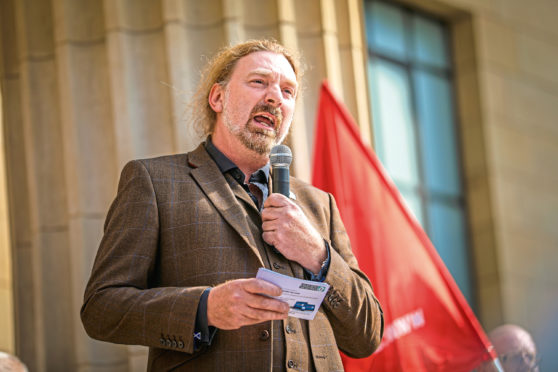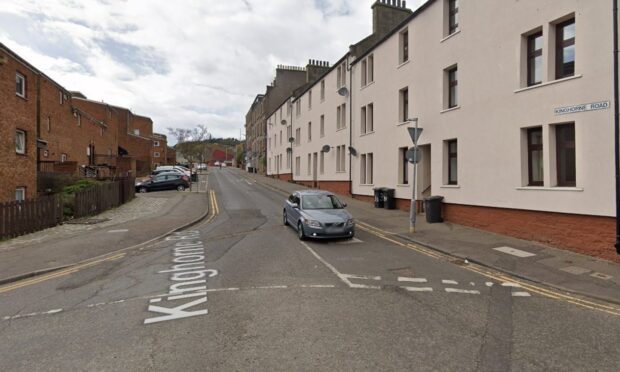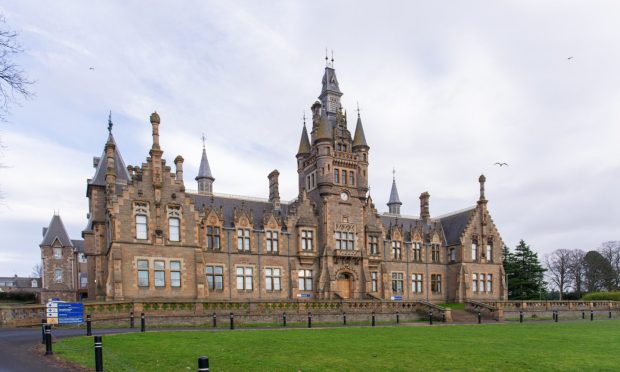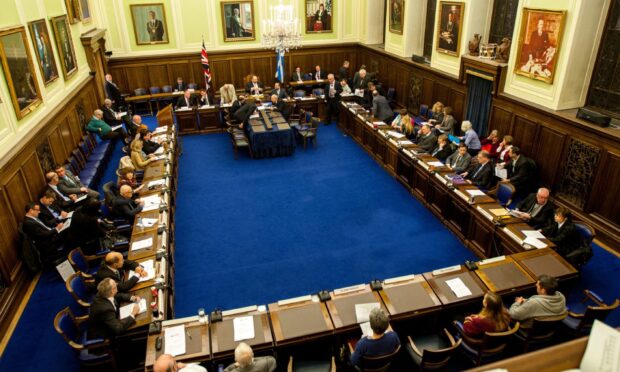A man’s home is his metaphorical castle, except in the case of prospective Dundee West MP Chris Law who literally lives in a castle.
Mr Law, who won Dundee West for the SNP after decades of Labour dominance in 2015, bought the castle, which was on the market for some £620,000, shortly after winning his seat.
He is, by all accounts, a man who has pulled himself up by his bootstraps from difficult beginnings.
Whether or not any mortgage on Mr Law’s property is contingent on any salary paid by the public purse is as irrelevant as the presence of any battlement, dungeon or other accoutrement befitting a castle his home may possess.
But – and I like big buts, I cannot lie – Mr Law’s purchase of said castle was never merely the acquisition of a stately pile in which to grow old as gracefully or disgracefully as he sees fit.
Instead, when Mr Law bought the castle he said he intended to create a respite centre for disabled children in the grounds of the near-12-acre estate.
Three years down the line, those plans still have not come to fruition.
Indeed, there is nary even a bud on the vine.
Mr Law, when asked this week about his plans, remained tight-lipped but the SNP has said he intends to press ahead with the venture at some unspecified point in the future, which is to be welcomed.
That Chris Law lives in a castle is not, in itself, particularly interesting.
It is extremely unlikely any voter in Dundee West, whatever party they cast their ballot for, will be swayed one way or the other by the grandeur or otherwise of a candidate’s home.
Plenty of politicians live in homes more expensive than most of their constituents could ever dream of owning.
But any public figure seeking election who says they are going to use their property for the public good will eventually have to make good on their promises or risk losing the public’s trust.
A degree of honesty is the least we should expect from our political leaders.
It’s why Ian Blackford, the SNP leader at Westminster, is often ridiculed for describing himself as a “simple crofter” when he enjoyed a successful career in the City before entering politics.
Or to put it another way: a politician won’t be judged on their duck pond but they will be judged if they use parliamentary expenses to pay for its cleaning, as Sir Peter Viggers once did.
Asking why a politician’s previous promise has not been met isn’t intrusive or unfair; it’s simply asking them to demonstrate the worth of their word.
Joint approach
Being a fair-minded chap, this column does, occasionally, like to give credit to politicians when they deserve it.
This week Pete Wishart – former Runrig chap on keys and SNP PPC for Perth and North Perthshire – and the Scottish Affairs Committee he chairs both deserve a hearty pat on the back.
Their report on Scotland’s drugs death crisis called for the “pragmatic” decriminalisation of drugs to help reduce fatalities, and even took a pop at the Scottish Government over funding of drug treatment services.
Mr Wishart described the report as “all encompassing”. He could also have accurately called it “correct”.
Let’s hope its conclusions are not forgotten in the madness of the coming weeks.
Train in vain
Scotland’s trains are rubbish. I know it, you know it and anyone who pretends otherwise is lying, drunk or a fool.
This week it emerged that four out of five trains on an early evening service from Edinburgh to Fife ran late.
Given that commuters also regularly find themselves squished together when trains do arrive, it’s no wonder many people prefer to take their car instead.
For a country that has ambitious targets to promote sustainable travel, the generally dismal standard of public transport available to get from A to B, as well as its exorbitant price, is a problem that requires immediate attention.
Trouble at mill
And so to St Monans, the spiritual hinterland of my youth, where storms damaged the sails on the village’s windmill this week, a relic from the days when salt pans were in operation.
It’s a fascinating bit of history, particularly if you’re a fan of sodium chloride and/or incredibly straight lines carved into rock.
The windmill is often referred to as historic, even though half of it, and the sails, were entirely rebuilt around 20 years ago.
Can something half-new be described as old? Like Trigger’s broom in Only Fools And Horses, it’s a philosophical conundrum for the ages.










